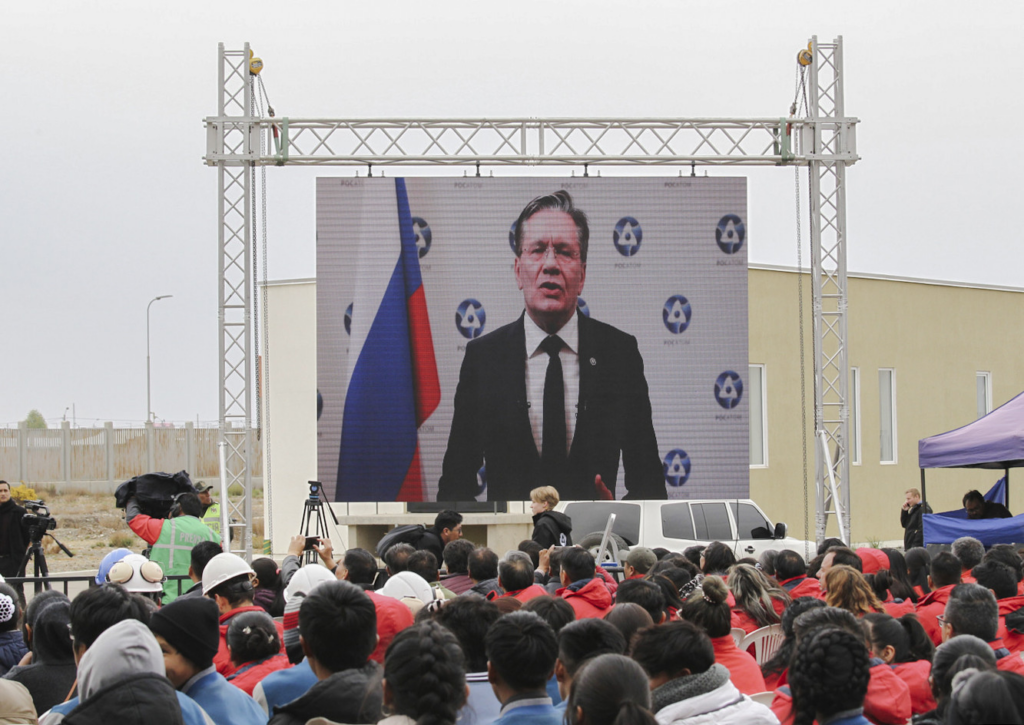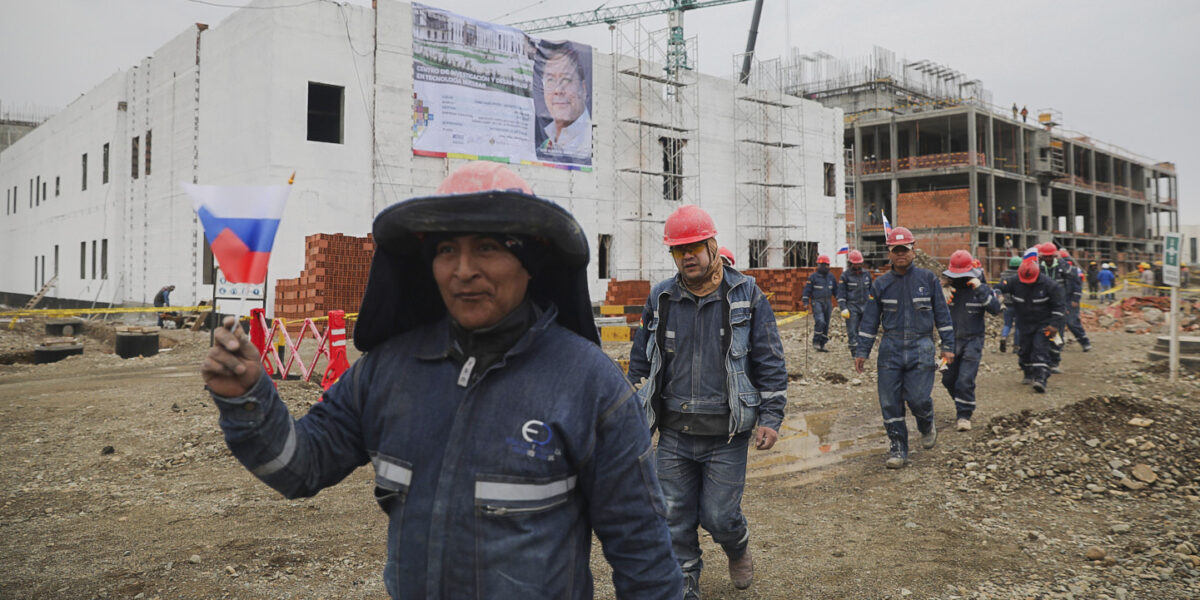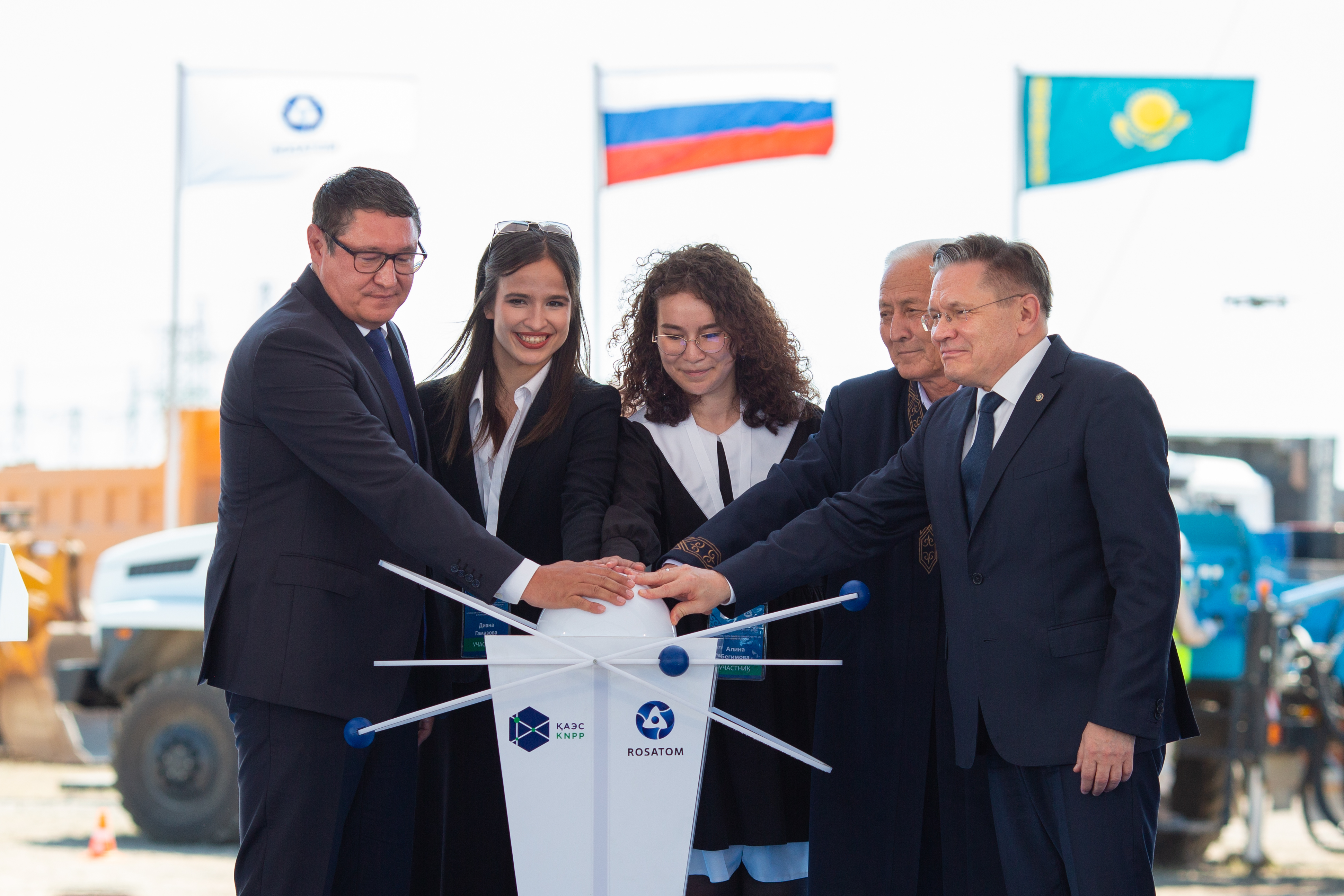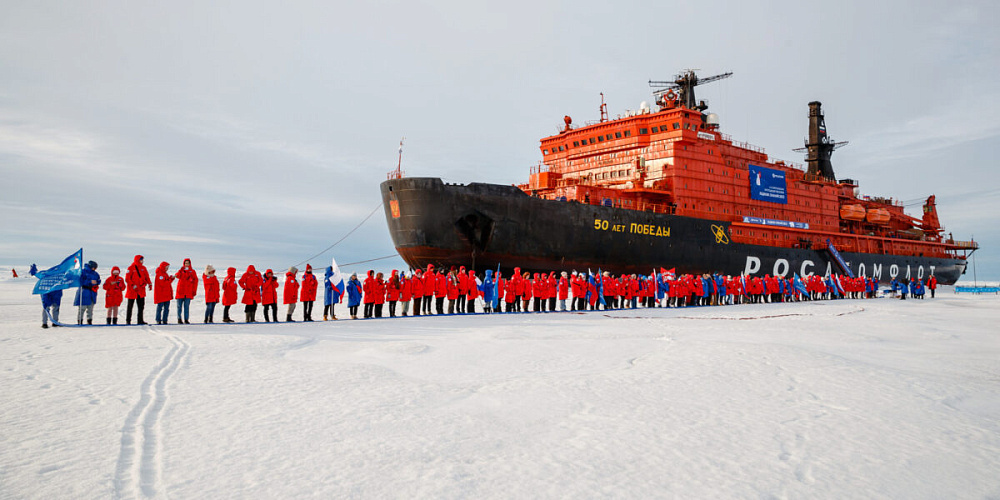Nuclear fuel for the initial loading of the BRR-1 research reactor, a facility under construction in Bolivia, has been manufactured and passed the acceptance tests at the Novosibirsk Chemical Concentrates Plant, an enterprise of Rosatom’s nuclear fuel division.
The shipment of the fuel bundles to Bolivia is scheduled for 2025.
The first research reactor in Bolivia should become the key facility of the fourth phase of the national Center for nuclear research and technologies in El Alto. The project is under implementation by the Bolivian Atomic Energy Agency in cooperation with Rosatom.
The reactor vessel was delivered from Russia and installed in 2023. It is a pool-type research reactor with a 50 years service life. The nuclear fuel assemblies for WWR-M2, developed by Rosatom's engineers, should remain operational even in case of an earthquake with a maximum intensity of 8.7 points on the MSK-64 scale.
“Bolivia is the first South American country in the geographic footprint of Russian nuclear fuel supplies. Rosatom has vast experience in construction of research reactor facilities abroad and traditionally provides them with nuclear fuel throughout their entire service life. The Novosibirsk Chemical Concentrates Plant has been producing nuclear fuel and its components for research reactors in various regions of the world for already 50 years, including facilities of both Russian and foreign design,” commented Oleg Grigoriyev, Senior Vice President for Commerce and International Business at TVEL Fuel Company of Rosatom.
The BRR-1 research reactor in El Alto is aimed at production of radioisotopes for scientific research. The facility also will be used to study the chemical composition of materials using the neutron activation analysis method, which is in demand in various industries. The method helps scientists to determine the composition of rocks, ores and concentrates, biological samples, also to develop programs for efficient use of natural resources and continuous monitoring of the environment. The reactor will also become a base for training students in nuclear studies.

Reference
El Alto Nuclear Research and Technology Center is an innovative project within Russian-Bolivian cooperation, combining advanced nuclear technologies for healthcare, agriculture and many other sectors.
The project includes a reactor complex for radioisotope production and neutron activation analysis, a preclinical cyclotron-radiopharmacological complex for the production of radiopharmaceuticals, a multipurpose irradiation center (MPC) for the processing of agricultural products and sterilization of medical devices, as well as a laboratory of radiobiology and radioecology.
Construction of the first two phases of the center has already been completed - the cyclotron complex and the multipurpose irradiation center were commissioned in 2023. The first complex is designed for the production of a wide range of isotopes, which are already supplied to medical clinics in Bolivia for the diagnosis of oncologic diseases. The second facility, the IUEC, is also important because it allows for the treatment of agricultural and food products to ensure their safety and extend their shelf life. The IUEC can also be used to sterilize a variety of medical devices.
TVEL Fuel Company of Rosatom (Nuclear Fuel Division of Rosatom State Corporation) includes enterprises for fabrication of nuclear fuel, uranium conversion and enrichment, production of gas centrifuges, as well as research and development organizations. As the sole supplier of nuclear fuel for Russian NPPs, TVEL provides fuel for more than 70 power reactors in 15 countries, research reactors in nine countries and propulsion reactors of the Russian nuclear fleet. Every sixth power reactor in the world is fueled by TVEL. Rosatom’s Fuel Division is the world’s largest producer of enriched uranium, as well as the leader of the global stable isotope market.
The Nuclear Fuel Division is actively developing new businesses in chemistry, metallurgy, energy storage technologies, 3D printing, digital products, and decommissioning of nuclear facilities. http://www.tvel.ru





